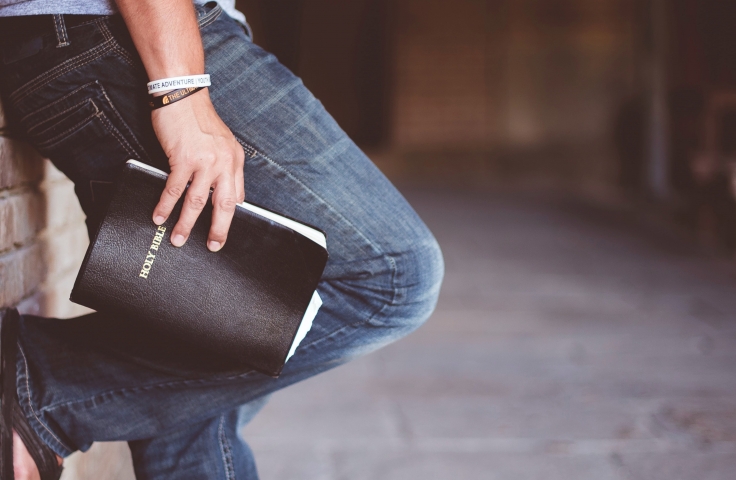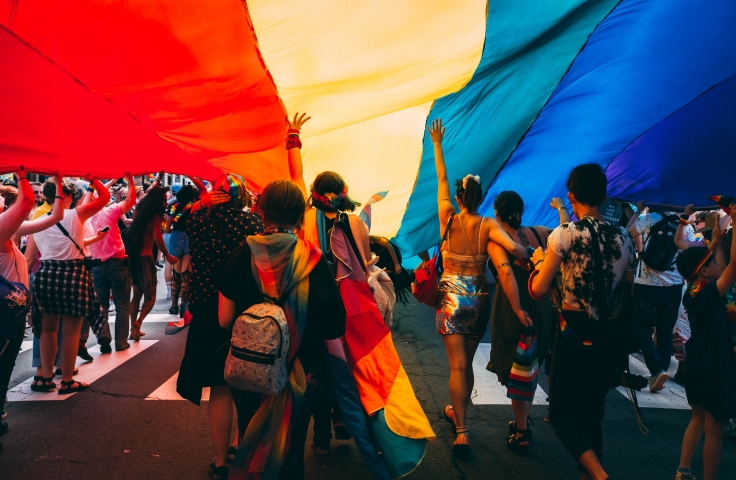The hotly debated Religious Discrimination Bill, first promised by Prime Minister Scott Morrison more than five years ago, had been shelved, but the Albanese Government has promised to introduce its own version of the legislation. We spoke to Australian Human Rights Institute Associate, Professor Lucas Lixinski, about the original bill, its controversial aspects and its future prospects.
Why do advocates say we need a Religious Discrimination Bill in Australia?
Some communities of faith saw themselves threatened with the advent of marriage equality in Australia. These groups felt that they would be required to accept, within the parameters of their faith, an imposition from the State (that same-sex unions be recognised). This led to a push for religious protection.
The truth, however, is that communities of faith have never been required to celebrate same-sex unions; but rather, to simply tolerate them as a part of society. The Religious Discrimination Bill became an opportunity to expand the role of religion in Australia. In effect, it also became a means for the State to protect communities that organise themselves around religion at the expense of communities that organise themselves around other characteristics, such as sexual orientation and gender identity.
What protections does the law currently provide for people of faith?
Australia is a party to the International Covenant on Civil and Political rights, which affords extensive protections to religious freedom. Communities of faith are allowed to practice and profess their faith in public and private settings. In practice, the government helps fund religion, at the very least indirectly through funding education in schools run by religious organisations. However, the freedom of religion protected in the Covenant is not absolute. Crucially in this case, it can be restricted based on the rights of others.
During the debate over the form of the Religious Discrimination Bill in early 2022, the Federal Government agreed to amend the Bill to make it unlawful for a person to expel a student on the ground of their sexual orientation or gender identity. Would this be sufficient to protect kids in religious schools from discrimination? What about teachers?
I believe preventing a student from being expelled based on their sexual orientation or gender identity is the bare minimum and does not go far enough. If a religious school did not want to have these types of students in their school, they could still make the environment sufficiently unwelcoming so that students would be effectively forced to leave. In some ways, then, the prohibition of expelling a student or firing a teacher creates an incentive for creating hostile educational and work environments.
Why was a ‘statement of belief’ clause so controversial? What does it mean?
The ‘statement of belief’ clause would have allowed people to make discriminatory statements on the basis of faith to others with whom they disagreed. These statements, as long as they were made without malicious intent, in line with the teachings of a religion and not meant to vilify or harass, would have been protected by law. But the protections hinged a lot on the intention of the speaker, rather than on how the statement was perceived.
Because intention is so subjective, we would need to take the speaker’s word for it. In other words, people would be able to say anything they wanted -- for instance, about women who have children out of wedlock -- as long as they could find a reference to the topic in a religious text that supported their views and they stated that their intention was to spread the word of the religious text, and not to vilify single mothers. It is an artificial line, drawn to benefit people who use religion to reject people who are different from them.
Many Australians became aware of Citipointe Christian College in Brisbane this year, after the school demanded parents sign an enrolment ‘contract’ denouncing homosexuality and confirming that students would attend the school identifying as their birth gender. If the Bill were to pass in its current form, would this prevent this situation happening again?
If anything, the bill’s passage would allow this type of situation to happen more often in my view. This is because it would allow schools to check whether their students conform to certain views of gender and sexuality, and take disciplinary action based on those views.
What is the status of the Bill now? Will it come back in some form?
The Morrison Government Bill was shelved, reportedly because some Christian groups indicated that, without certain protections guaranteeing them the right to discriminate against LGBTIQ+ and other groups, the Bill did not go far enough for them.
In my opinion, this change in support indicates that the Bill was never about protecting religious freedom. Instead, it was about enshrining a right to discriminate against others. Very few readings of religion require discrimination against others. Despite this, the Bill attempted to turn that idea into law.
Lucas Lixinski is a Professor at the Faculty of Law and Justice (UNSW Sydney), an Australian Human Rights Institute Associate and a former Editor-in-Chief of the Australian Journal of Human Rights. You can follow him on Twitter: @IntHeritageLaw


